EXECUTIVE AND LEADERSHIP COACHING
COACHING
Coaching is a stimulating, disciplined process that helps leaders achieve results. It allows clients to examine their work in a strategic context and refocuses their efforts for maximum impact. Coaching helps many types of leaders, including those who:
• Have technical skills and are learning the people side of leadership,
• Have a tactical focus and are learning the strategic side of the business, or
• Need a boost to reach or return to high performance
COACHING PROCESS
Even though each coaching case is unique, our coaching process follows the steps below:
1. Understand the Person We start with an assessment of the client to help identify the individual’s strengths and areas for improvement. Various tools can be used at this step, including interviews, 360 Degree Feedback, personality tools, or ability measures.
2. Create the Coaching Plan The assessment information is reviewed with the client to understand current strengths and development needs. Next, the coach and the client discuss where the client wants to go. Goals for the coaching relationship are set, and the coaching plan is created.
3. Coach and Develop Talent Coaching follows this plan and typically lasts for six months. After six months, progress is reviewed with the client to determine if goals have been met and whether to move forward with further coaching.
4. Review and Transition Most of our coaching engagements are structured for a six month engagement. At the end of six months, we pause to reflect on the progress the client has made working with his or her coach. At that point, the client decides whether the coaching goals have been accomplished or if he or she would benefit from another six months. If additional time is requested, the initial coaching goals are revisited, revised, and brought up to date to plan for the next six months (see our article here on bringing coaching goals up to date).
ABOUT OUR COACHES
Our coaches have many years of experience developing leaders and helping organizations find solutions to leadership problems. They bring a breadth of experience to every coaching session. Specifically, they have:
• Experience across industries, including manufacturing, consumer products, biotechnology, aerospace, pharmaceuticals, and financial services.
• Experience working with leaders at all levels of the organization, from the board room to the shop floor.
• The ability to lead their clients to greater awareness and understanding of the dynamics that create many of the challenges facing leaders
LEADERSHIP
DEVELOPMENT
LEADERSHIP DEVELOPMENT
EXECUTIVE AND LEADERSHIP COACHING
LEADERSHIP ASSESSMENT
MENTORING PROGRAM TRAINING AND CONSULTING
EXECUTIVE COMPASS 360™
SITUATIONAL LEADERSHIP® II
LEADERSHIP TRAINING
